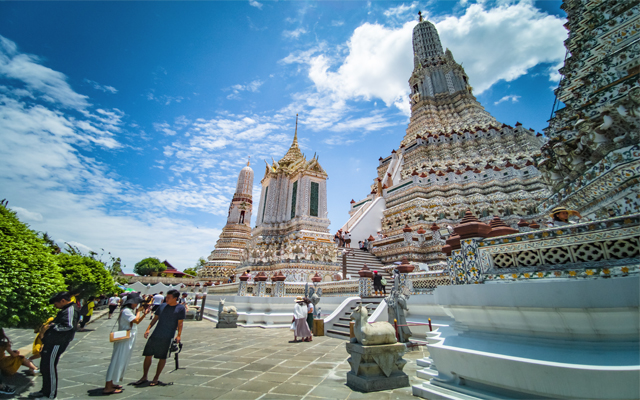
Thai hotel industry professionals are concerned that the government’s plan to shift its focus away from mass tourism and backpackers to high-spending travellers could mean that small businesses will be overlooked.
Officials last week announced a new luxury push to help make up for the current lack of inbound tourism, following media reports that Thailand’s travel bubbles proposal will not be ready for implementation by July and international flights may not resume before September.

Anthony Lark, president, Phuket Hotels Association (PHA), stressed that small hotels have a key role to play in the country’s tourism recovery. He elaborated: “It’s great to drive business away from mass tourism in the long-term, yet higher rates should ideally be linked to all levels of the business, not just the luxury sector – the recovery has to also include hotels that are three- and four-star, not just five-star.”
Bill Barnett, founder, C9 Hotelworks, echoed similar thoughts, saying there are “too many three-star hotels in Thailand” for the luxury push to reap mass benefits for the hospitality industry.

Thailand should not forsake mass tourism for the luxury sect, according to David Barrett, marketing communications consultant at DBC Asia. While “tapping the luxury segment is nothing new for Thailand”, he said that “luxury” must be kept in perspective and high yield tourists should be targeted in tandem with wooing back mass tourism.
However, he warned that Thailand needs to refrain from chasing every tourism dollar. “Covid-19 presents Thailand with an opportunity to reset and build a better tourism model. However, we need to better manage the kingdom’s resources, protect the environment, and learn to say ‘no’ to new hotel developments in an oversaturated market and ‘no’ to tour operators who have disregard for the destination and environment,” Barrett said.
“Control has been woefully lacking in the past, causing the overtourism that Thailand was talking about pre-Covid-19 and environmental devastation from mass group tours.”
Last week, the Thai government approved a 22.4 billion baht (US$718 million) domestic tourism stimulus that promises to benefit hotels, F&B businesses, travel agencies and domestic airlines. Licensed hotels and accommodations are eligible to join the programme.
Phuket will be a prototype for using luxury island resorts to draw medical and business travellers – the first groups to be allowed into Thailand when the country reopens its borders to international arrivals.
To this end, Lark stated that PHA is working with the Tourism Authority of Thailand and the Thai Hotel Association Southern Chapter “to drive a thoughtful campaign to highlight the unique experiences of Phuket, directed at families and FIT travellers worldwide, who spend more than the mass market (visitors)”.



















